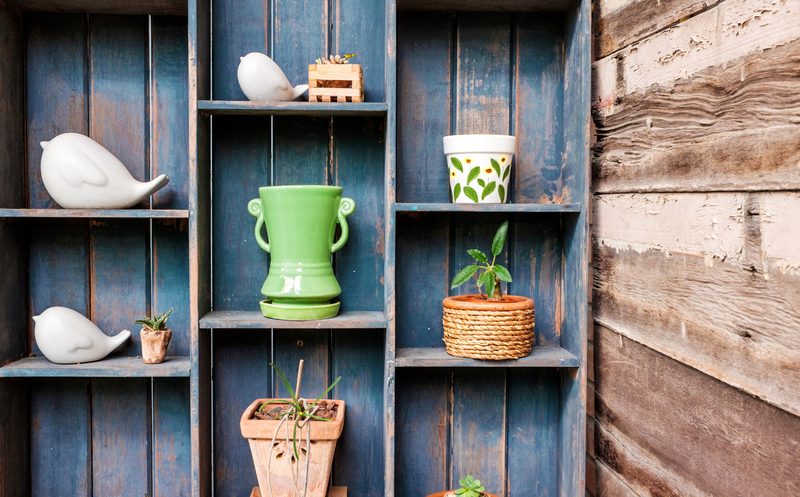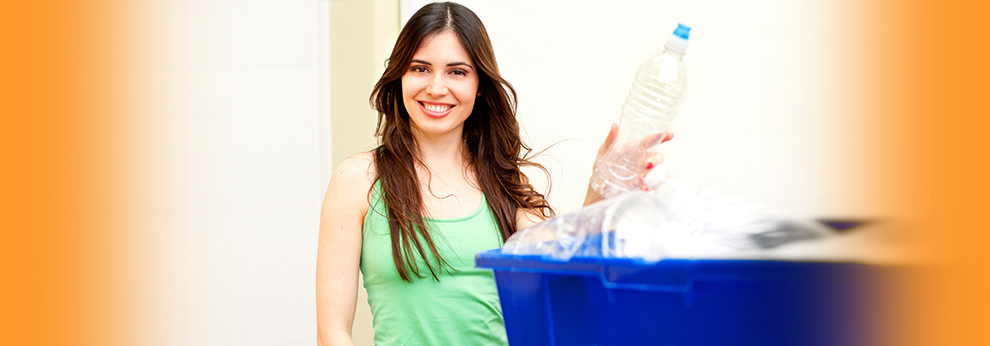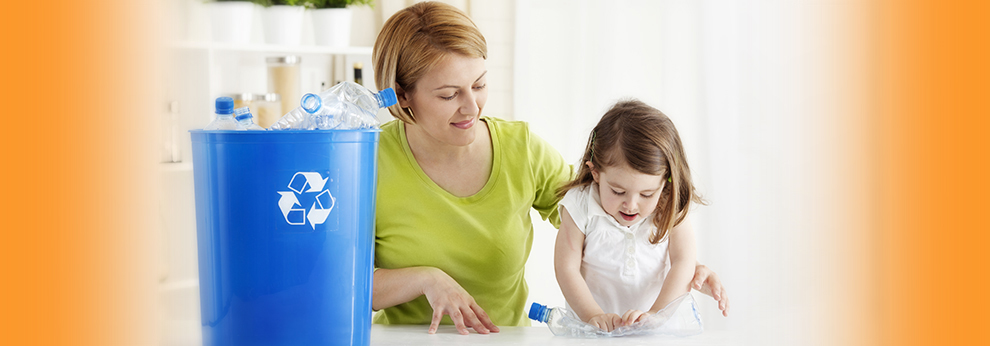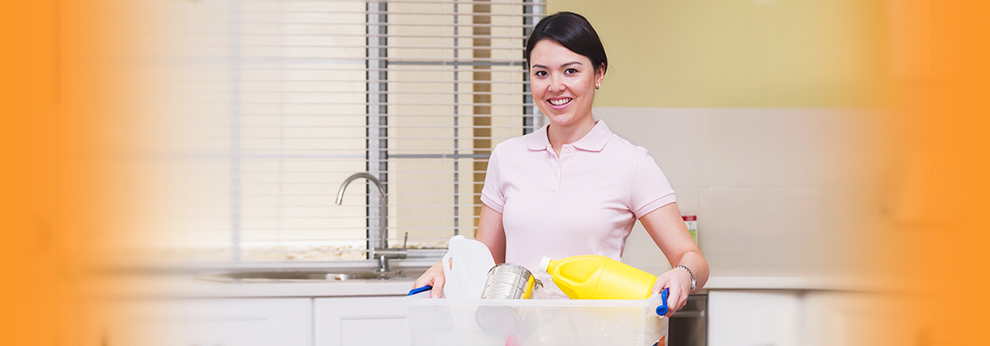Eco-Friendly Tips to Reduce Plastic Pollution
Posted on 25/09/2025
Eco-Friendly Tips to Reduce Plastic Pollution
Plastic pollution is one of the greatest environmental threats facing our planet today. As millions of tons of plastic waste enter our ecosystems each year, it's vital that we take steps--both big and small--to minimize our environmental footprint. In this article, we'll delve into practical and actionable eco-friendly tips to reduce plastic pollution, helping you contribute to a cleaner, greener world.

Understanding the Plastic Problem
Plastics are durable, lightweight, and inexpensive, which makes them incredibly useful in daily life. However, these benefits come at a high environmental cost. Single-use plastics, such as bags, bottles, straws, and packaging, account for a significant portion of the plastic waste generated globally. This waste often ends up in landfills and oceans, harming wildlife, polluting water sources, and entering our food chain.
Why Is Reducing Plastic Pollution Essential?
Reducing plastic pollution is essential for safeguarding biodiversity, protecting human health, and preserving natural resources for future generations. Plastics take hundreds of years to decompose, and their tiny particles--known as microplastics--can be found virtually everywhere, from the deepest oceans to the food we eat and the air we breathe.
- Plastic pollution threatens marine life and birds, often resulting in fatal ingestion or entanglement.
- It disrupts delicate ecosystems, leading to long-term environmental degradation.
- Plastic chemicals can contaminate soil and groundwater, harming both wildlife and humans.
Actionable Eco-Friendly Strategies to Minimize Plastic Use
Adopting eco-friendly ways to cut down on plastic waste doesn't have to be overwhelming. By making conscious choices and small changes in your daily life, you can make a significant difference. Here are some of the most effective and practical tips for reducing plastic pollution:
1. Choose Reusable over Disposable Products
- Replace plastic bags with reusable cloth or jute bags.
- Opt for stainless steel or glass water bottles instead of single-use plastic bottles.
- Bring your own coffee cups and food containers when buying takeout.
- Switch to refillable pens and rechargeable batteries.
Making the switch to reusable products is one of the simplest yet most effective plastic pollution reduction strategies. Each reusable item can replace hundreds or even thousands of disposable plastics over its lifetime.
2. Refuse Single-Use Plastics
- Politely decline plastic straws, cutlery, and cups at restaurants or cafes.
- Say no to products wrapped or layered in unnecessary plastic packaging.
- Encourage friends and family to adopt a similar attitude towards single-use plastics.
_It only takes a moment to refuse a single-use plastic item, but this simple action can greatly reduce plastic waste over time._
3. Purchase in Bulk or with Less Packaging
- Shop at zero-waste stores that allow you to bring your own containers.
- Find local co-ops or markets that offer produce and goods without excessive packaging.
- Purchase large, family-sized items instead of individually wrapped singles to decrease overall plastic use.
_Bulk buying not only cuts down on plastic, but it also often saves you money and reduces food waste._
4. Support Eco-Conscious Brands
- Choose products from brands that use biodegradable, compostable, or recyclable materials.
- Look for companies with transparent and sustainable packaging practices.
- Support businesses that have plastic-free initiatives or that offset their plastic usage.
By voting with your wallet, you help support a market shift towards environmentally considerate practices and sustainable packaging.
Reducing Plastic Pollution at Home
Your home is the ideal place to implement numerous eco-friendly solutions to plastic pollution. In every room, from the kitchen to the bathroom, you can find opportunities to cut back on plastic.
5. Switch to Eco-Friendly Household Products
- Use bar soaps or refillable liquid soaps instead of those sold in plastic bottles.
- Choose laundry detergent sheets or powders in cardboard boxes over plastic jugs.
- Find cleaning product brands that offer refill stations or package-free options.
6. Make Your Own Cleaning Supplies
- Create all-purpose cleaners with basic ingredients like vinegar and baking soda, stored in glass spray bottles.
- Use reusable cloths instead of disposable wipes.
- Upcycle old t-shirts or towels for rags instead of buying packaged cleaning cloths.
Homemade cleaning products not only reduce plastic packaging but can also minimize exposure to harsh chemicals in your home.
7. Opt for Plastic-Free Toiletries
- Switch to bamboo toothbrushes and silk dental floss.
- Try shampoo and conditioner bars instead of bottled products.
- Buy toilet paper wrapped in paper, not plastic.
Plastic Pollution Reduction in the Community
Making changes in your community is just as important as personal action. Collective efforts can have a significant impact in reducing plastic waste.
8. Organize or Join a Local Clean-Up
- Participate in beach, river, or park clean-up events in your local area.
- Start your own clean-up drive with friends, neighbors, or schools.
- Share your efforts on social media to inspire others to join the movement.
These events not only remove harmful waste from the environment but also raise awareness about the issue of plastic waste reduction.
9. Advocate for Policy Change
- Encourage businesses and local authorities to ban or limit single-use plastics.
- Support legislation that promotes plastic alternatives and extended producer responsibility.
- Raise awareness about the impact of plastic pollution through petitions, blogs, and educational programs.
_Demonstrating civic leadership can put pressure on governments and corporations to make more sustainable choices._
Plastic-Free Lifestyle: Healthy Habits for a Pollutant-Free Planet
Shifting towards a plastic-free lifestyle may seem daunting at first, but by developing conscious habits, you can make the process manageable and rewarding.
10. Meal Prep to Avoid Takeout Packaging
- Prepare meals at home and pack them in reusable containers.
- Bring your own cutlery and containers if you must order takeout.
- Communicate with restaurants to omit plastic utensils and sauces whenever possible.
11. DIY Instead of Buying Packaged Goods
- Make your own snacks, sauces, and beauty products, storing them in reusable jars.
- Participate in community swaps or exchanges for goods and supplies.
12. Educate Yourself and Others
- Learn about the consequences of plastic pollution and solutions available.
- Share knowledge with family, friends, and your wider network.
- Use social media platforms to spread awareness and success stories about plastic waste reduction.
Eco-Friendly Plastic Alternatives
Fortunately, the industry is rapidly evolving to provide eco-friendly alternatives to plastic in almost every area of life. Here are some popular substitutes:
- Bamboo cutlery and plates
- Biodegradable bags made from cornstarch or cassava
- Compostable food wraps made from beeswax or soy wax
- Stainless steel or glass straws
- Reusable mesh produce bags
- Natural fiber sponges and loofahs
_Choosing these alternatives greatly reduces your personal contribution to plastic waste and supports industries working towards sustainability._
The Importance of Recycling Right
Proper recycling is a cornerstone of any effective strategy for reducing plastic pollution. Yet, improper recycling can contaminate batches and render them unusable.
13. Learn Local Recycling Guidelines
- Check which plastics your local facility accepts by number and category.
- Rinse out food containers before recycling to prevent contamination.
- Avoid "wish-cycling"--only recycle items you know are accepted by your program.
14. Support Recycling Initiatives
- Participate in take-back programs for hard-to-recycle plastics such as bags or film.
- Choose products made from recycled plastic whenever possible.
- Encourage local businesses to set up recycling bins or stations.
Recycling is only one piece of the puzzle; the real key lies in reduction and sustainable consumption.
Innovations in Tackling Plastic Pollution
New technologies and creative solutions are emerging to combat the global plastic crisis. Some exciting developments include:
- Enzymes and microbes that break down plastics naturally
- Bioplastics made from algae, seaweed, or plant starch
- Community deposit programs for returning bottles and containers
- Innovative ocean clean-up devices capturing floating waste
Supporting and staying informed about these breakthroughs amplifies collective efforts and motivates further innovation in the eco-friendly movement.
Tips For Reducing Plastic Use While Traveling
Travel often results in additional plastic consumption due to convenience, but with a little preparation, you can travel sustainably.
- Pack a reusable water bottle and coffee mug.
- Choose hotels or accommodations that prioritize sustainability.
- Shop at local markets and refuse single-use plastic bags or packaging.
- Bring your own toiletries in reusable containers.

Conclusion: Your Role in the Battle Against Plastic Pollution
The impact of plastic pollution stretches far beyond what we can see. By adopting eco-friendly tips to reduce plastic waste--from refusing single-use products to championing recycling and supporting innovation--you can become a catalyst for meaningful change. Together, our small actions add up, forging a path toward a cleaner, healthier planet.
Start today: swap out one plastic item for a sustainable alternative, educate a friend, or join a community clean-up. Remember, every step you take helps pave the way to a future where plastic pollution is a thing of the past.
Frequently Asked Questions (FAQ) About Reducing Plastic Pollution
What are the most effective ways to reduce plastic pollution in daily life?
The top strategies include opting for reusable items, refusing single-use plastics, shopping in bulk, recycling correctly, and supporting sustainable brands. Small changes, such as bringing your own bag or water bottle, make a huge impact over time.
Are bioplastics a complete solution to plastic pollution?
While bioplastics are a promising alternative, they are not a cure-all. Some require specific composting conditions to break down and may still have environmental consequences. Reducing overall plastic use remains the best approach.
Is individual action enough to combat plastic pollution?
Individual choices are crucial, but system-wide changes and policy reform are also necessary. Supporting organizations, advocating for legislation, and holding corporations accountable will hasten progress toward a plastic-free world.
Together, by embracing sustainable living and spreading awareness, we can make a measurable difference in the fight against plastic pollution.
Latest Posts
Inspiring School Recycling Plans That Make a Difference
Making the Case for Professional Waste Clearance Services
How to Optimize Your Skip Hire Strategy
Historical Highlights: How Different Societies Managed Waste
How to Ensure a Welcoming Atmosphere: Pre-party Cleaning Insights





